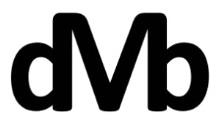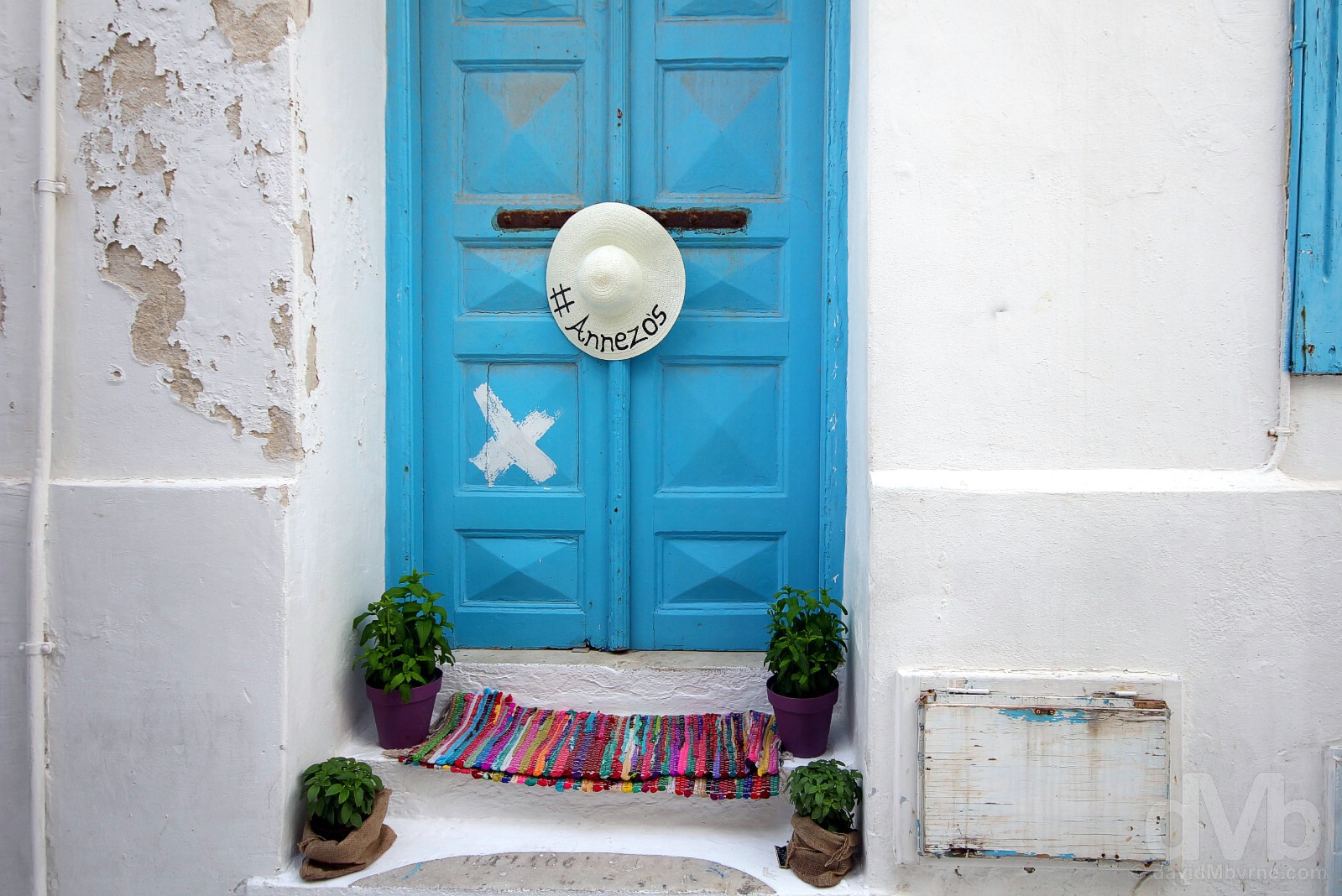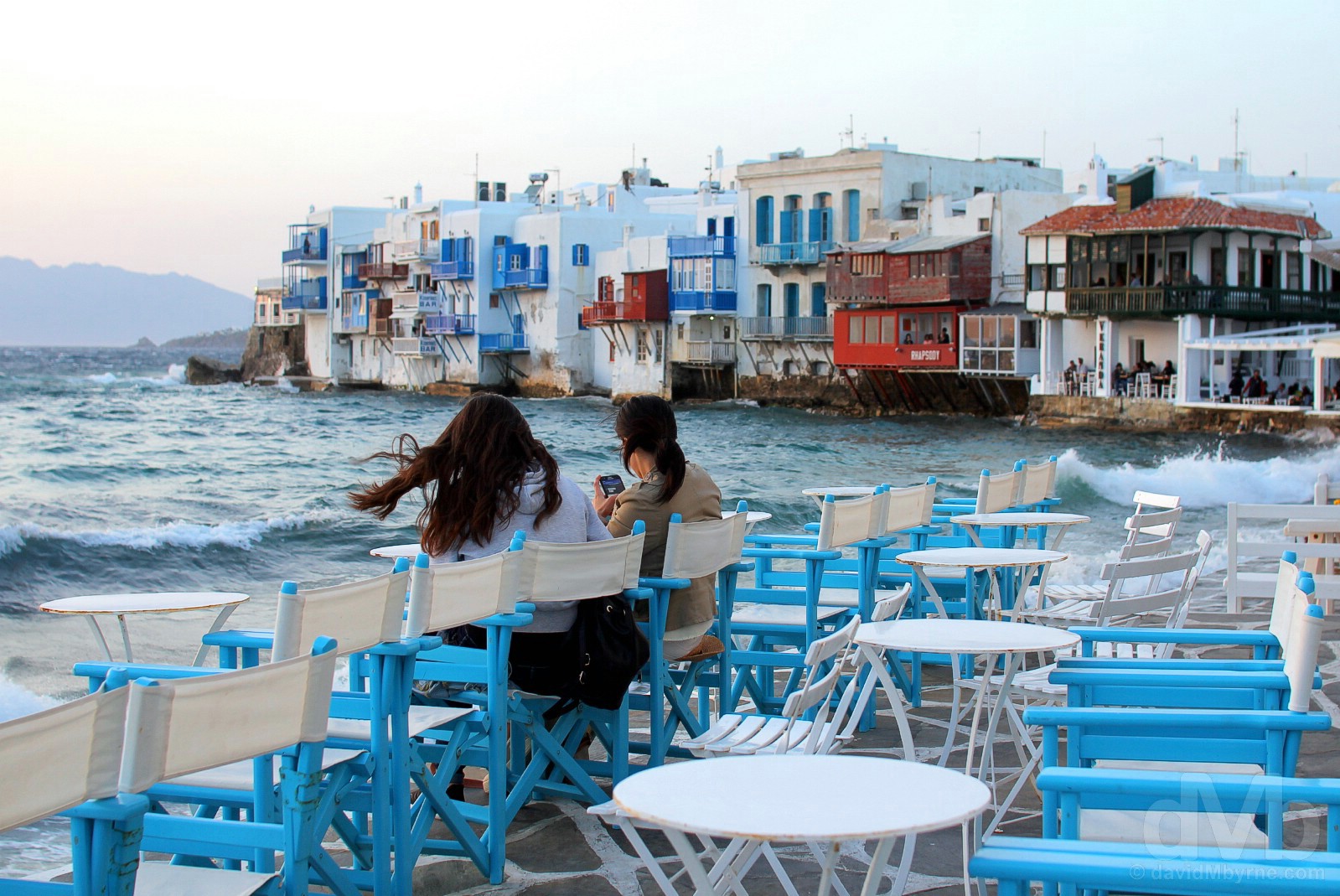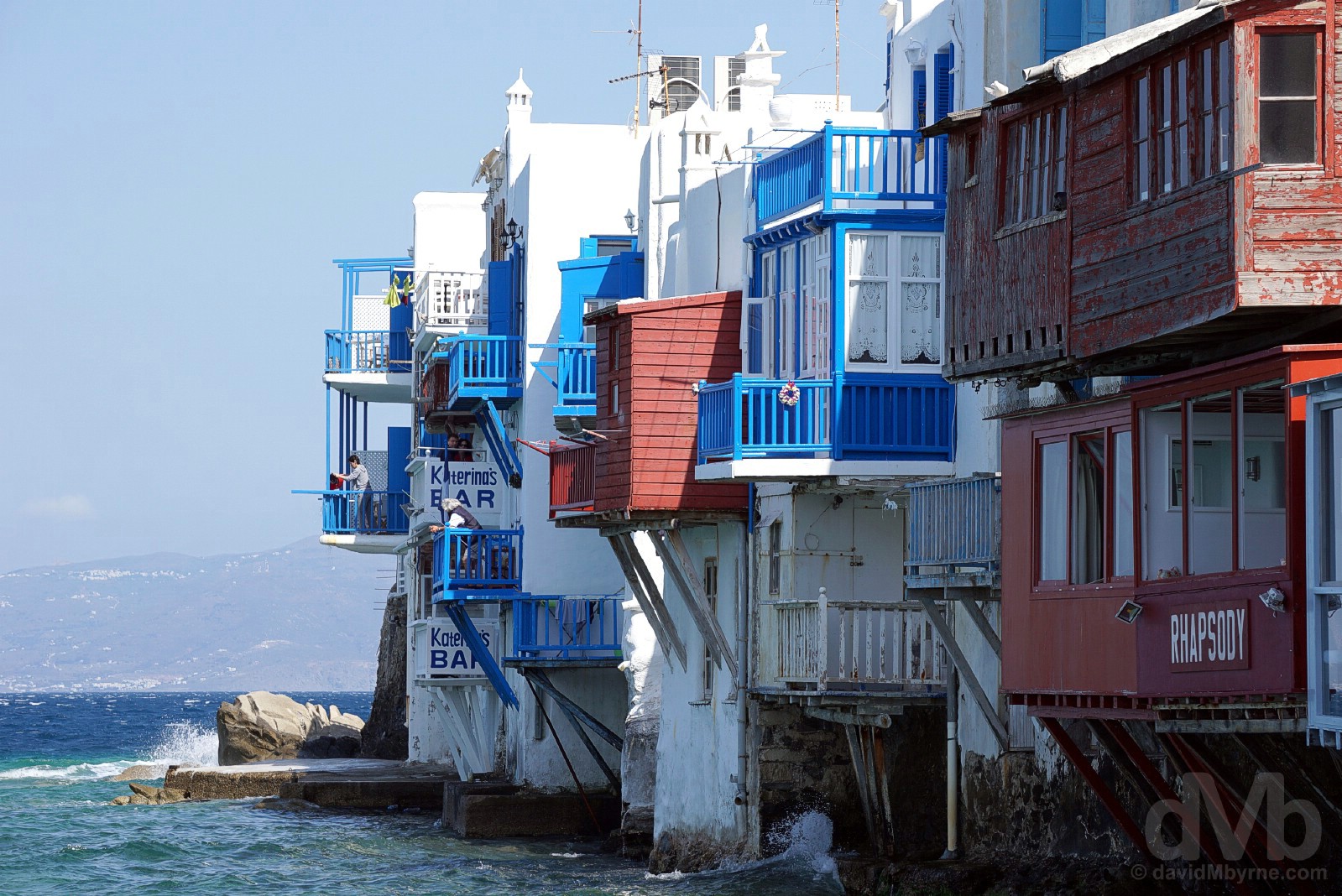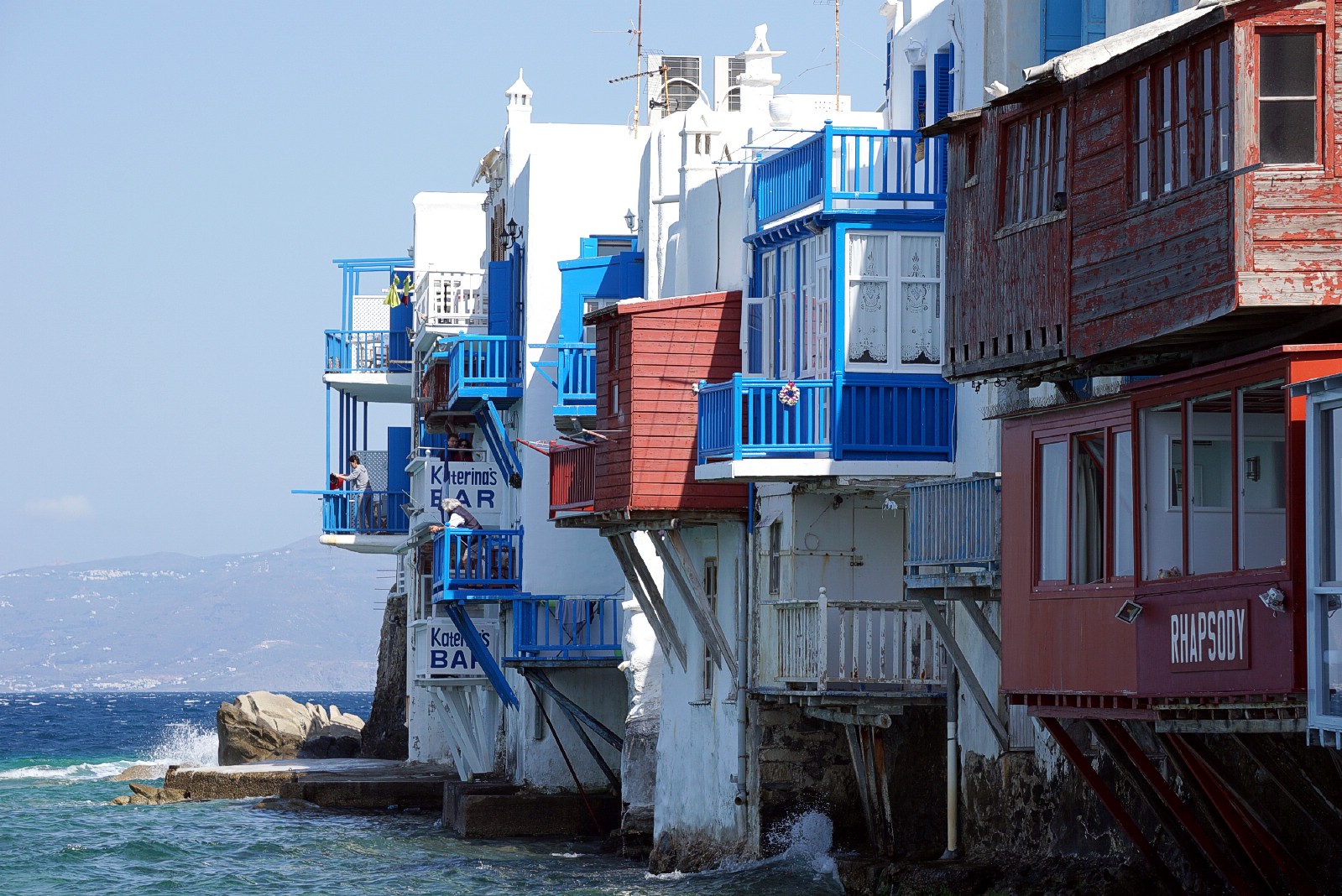Mýkonos, Greece
”It’s not the exclusive celeb and jet set hangout it used to be in the 50s and 60s, when such A-listers as Jackie O, Maria Callas, Marlon Brando, Grace Kelly and Elizabeth Taylor all vacationed here, but fabulous gay-friendly Mýkonos is still the Cyclades glamour capital, not to mention its hedonistic party central.”
Image || Little Venice, Mýkonos,. May 2, 2017.
Mýkonos, Cyclades, Greece
It’s not the exclusive celeb and jet set hangout it used to be in the 50s and 60s, when such A-listers as Jackie O, Maria Callas, Marlon Brando, Grace Kelly and Elizabeth Taylor all vacationed here, but fabulous gay-friendly Mýkonos is still the Cyclades glamour capital, not to mention its hedonistic party central.
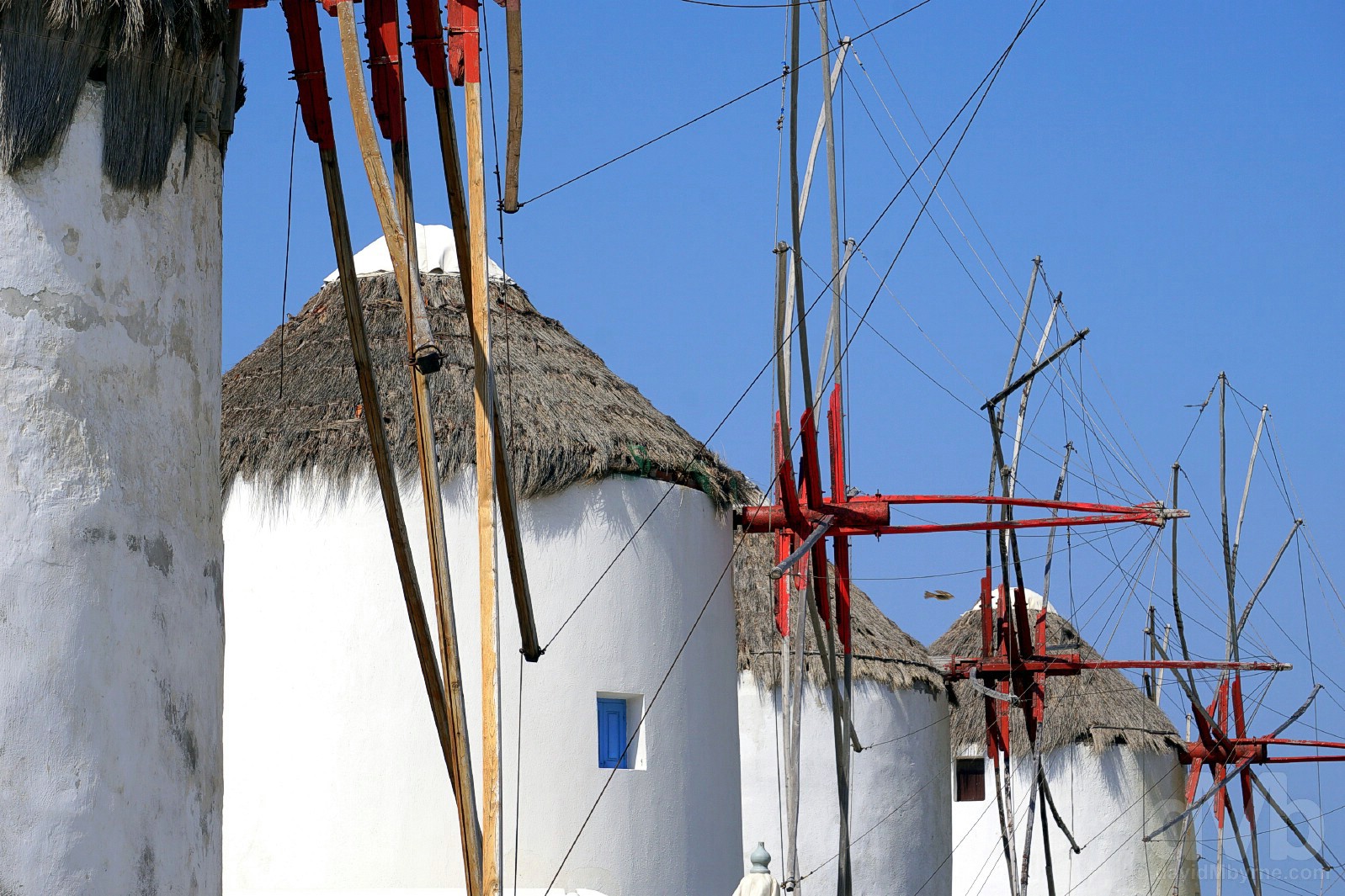
The squat structures of Mykonos’s Kato Mili (lower mills) were built by the Venetians in the 16th century to mill flour. Capped with wood and straw and perched on a headland overlooking the Hora waterfront to harness the wind (Mykonos is nicknamed The Island of the Winds), today they are a defining feature of the island’s landscape. Hora, Mýkonos, Cyclades, Greece. May 2, 2017.

The Panagia Paraportiani Orthodox Church, Mýkonos, Cyclades, Greece. May 2, 2017.
dMb Country Overview - Greece
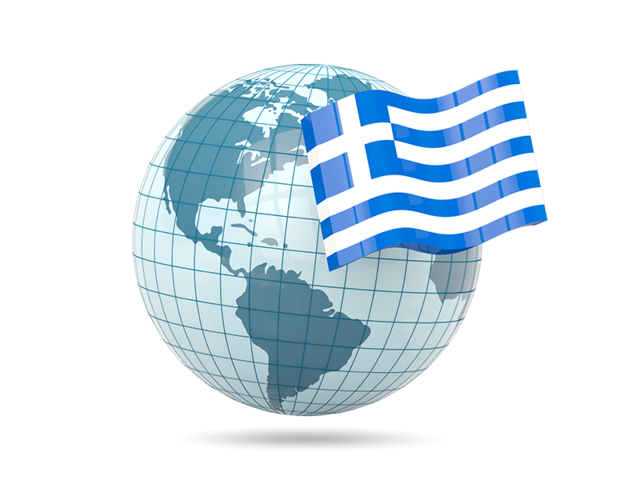 Greece
Greece
Region – Southeastern Europe/The Balkans (dMb tag: The Balkans). Capital – Athens. Population – 10.8 million. Official Language – Greek. Currency – Euro (€) GDP (nominal) per capita – US$21,000 Political System – Unitary parliamentary republic. EU Member? – Yes (10th member joined January 1981). UN Member? – Yes (founding member joined October 1945). G20 Member? – No. Size – 132,000 km² (Europe’s 15th largest country is approximately half the size of Ecuador, twice the size of Sri Lanka, and roughly the same size as the US southern states of Alabama and Louisiana. Topography – A mountainous interior (80% of Greece is mountainous), a long and convoluted coastline, and hundreds of offshore islands. Independence – 1830 from the Ottoman Empire following 1821 to 1830 Greek War of Independence. Brief History – From the eighth century BC, the Greeks were organised into various independent city-states, known as poleis (singular polis), which spanned the entire Mediterranean region and the Black Sea. Philip of Macedon united most of the Greek mainland in the fourth century BC, with his son Alexander the Great rapidly conquering much of the ancient world, from the eastern Mediterranean to India. Greece was annexed by Rome in the second century BC, becoming an integral part of the Roman Empire and its successor, the Byzantine Empire, which adopted the Greek language and culture. The Greek Orthodox Church, which emerged in the first century AD, helped shape modern Greek identity and transmitted Greek traditions to the wider Orthodox World. After falling under Ottoman dominion in the mid-15th century, Greece emerged as a modern nation state in 1830 following a war of independence. UNESCO World Heritage sites – 18. Tourism Catchphrase/Slogan – All Time Classic. Famous For – Endless coastline and beaches; shipping; democracy (born here); a classical and hallowed past; ouzo; sun-drenched islands; Alexander the Great; the Olympics; being the cradle of Western civilisation; food (tzatziki, feta, souvlaki, moussakas, yogurt, grapes, olives and olive oil); economic collapse & austerity.
Ouzo for sale in the village of Oia, Santoríni, Cyclades, Greece.

Ouzo for sale in the village of Oia, Santoríni, Cyclades, Greece.
Highlights – Cyclades island-hopping and the remnants of all that ancient history (Greece boasts four millennia of sun-bleached ruins, artefacts, and architecture). Greece Titbits – At nearly 14,000 km (8,500 miles), Greece has the 11th longest coastline in the world; Greece is considered the cradle of Western civilisation, being the birthplace of democracy, Western philosophy, Western literature, historiography, political science, major scientific and mathematical principles, Western drama, and the Olympic Games (the country’s rich historical legacy is reflected in part by its 18 UNESCO World Heritage Sites, as of 2017); the Greek economy is the largest in the region with an economy larger than all other Balkan countries combined, this despite its well-documented economic battering and subsequent austerity measures.
Visits – 2 (May 2008 and April/May 2017). Where I Went/What I Saw – Thessaloniki; The Cyclades (Santoríni, Paros, Mykonos, Delos, Tinos); Zakynthos/Zante; Olympia; Sparta; Mystras; Athens.

Browsing in the polished lanes of Hora, Mýkonos, Cyclades, Greece. May 2, 2017.
It is said that the warren of whitewashed laneways enjoyed by tourists in Cyclades towns today evolved as a defence mechanism against marauding pirates. In this, too, Mýkonos stands out from the regional competition – the tight lanes of Hora are noticeably more disorienting (it’s easier to get lost here than elsewhere). They are also noticeably busier, especially when the cruise ships dock and let their cargo loose, when the lanes can feel like a free-for-all. Did I mention that Mýkonos is the busiest of the Cyclades?
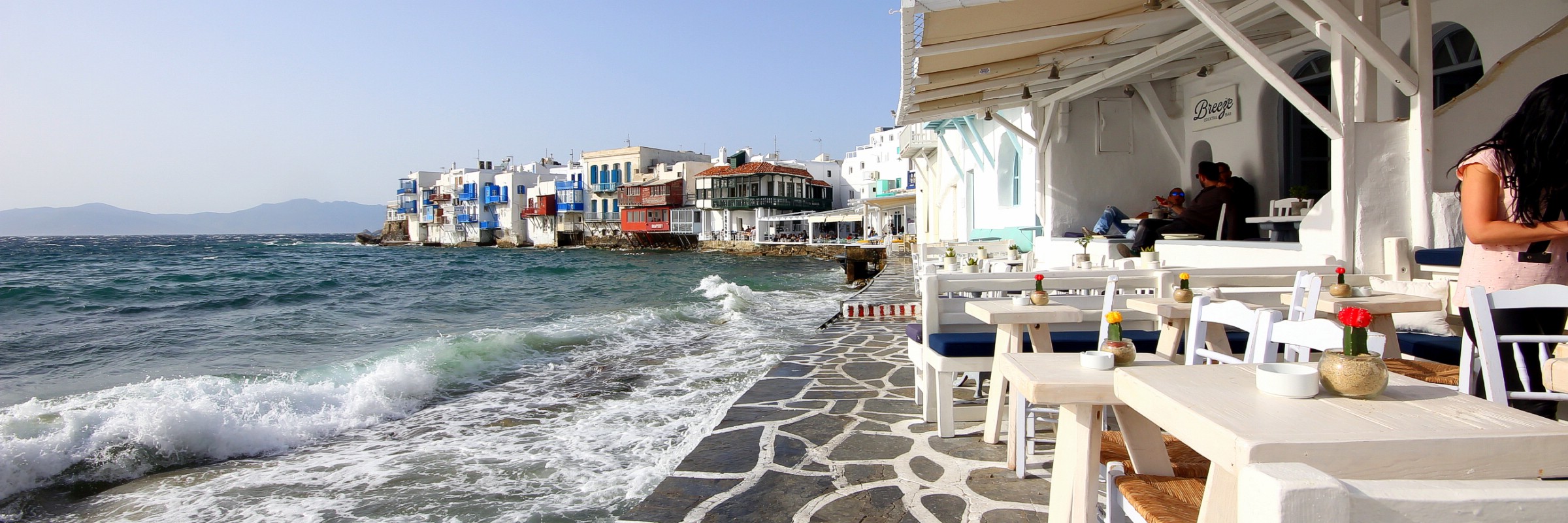
LITTLE VENICE | A breezy Hora waterfront, aka Little Venice, Mýkonos, Cyclades, Greece. May 2, 2017.
A string of (expensive) cafes and bars and a few arcaded Venetian houses built on the water’s edge does not a Veneto capital city make, not even a ‘little’ one. While picturesque, the Mýkonos waterfront doesn’t resemble any Venice I’ve ever visited, even allowing for the fact that Mýkonos was under Venetian rule in the 13th century and that the island was used as a stop on the trade route between Venice and Asia. Must try harder.
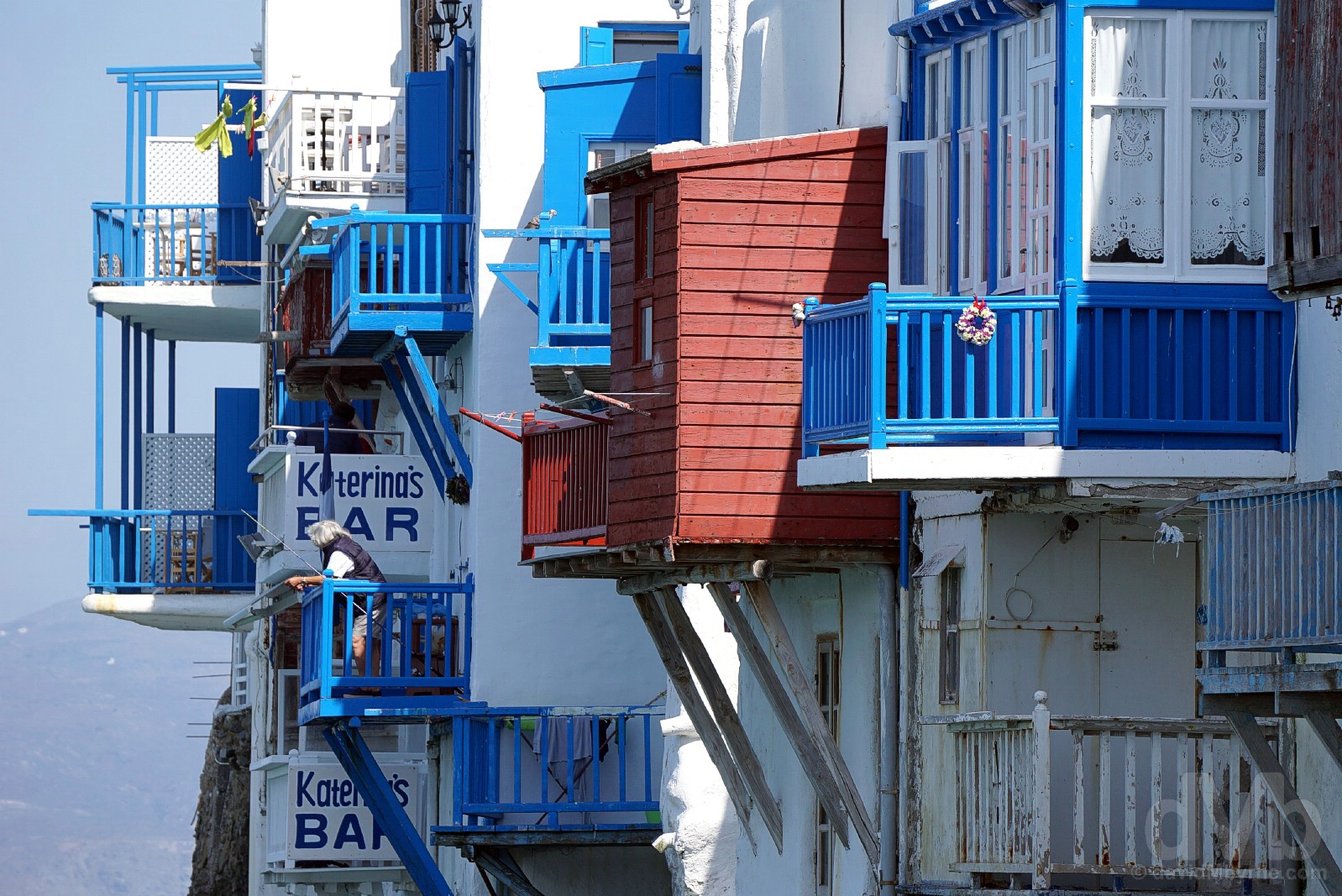
FISHERMAN HOUSES |The overhanging balconies of the former fishing houses on the Hora waterfront, aka Little Venice, Mýkonos, Cyclades, Greece. May 2, 2017.
The row of overhanging balconies of Hora’s waterfront/Little Venice is one of the island’s most photogenic sights. Former fishing houses first constructed in the mid-18th century and today looking more like shacks, they once provided direct access to the water for their seagoing residents. Fronting the polished and busy lanes of present-day Hora means some of them have been converted into bars, cafes, shops and accommodation options, although there are still some used for residential purposes.
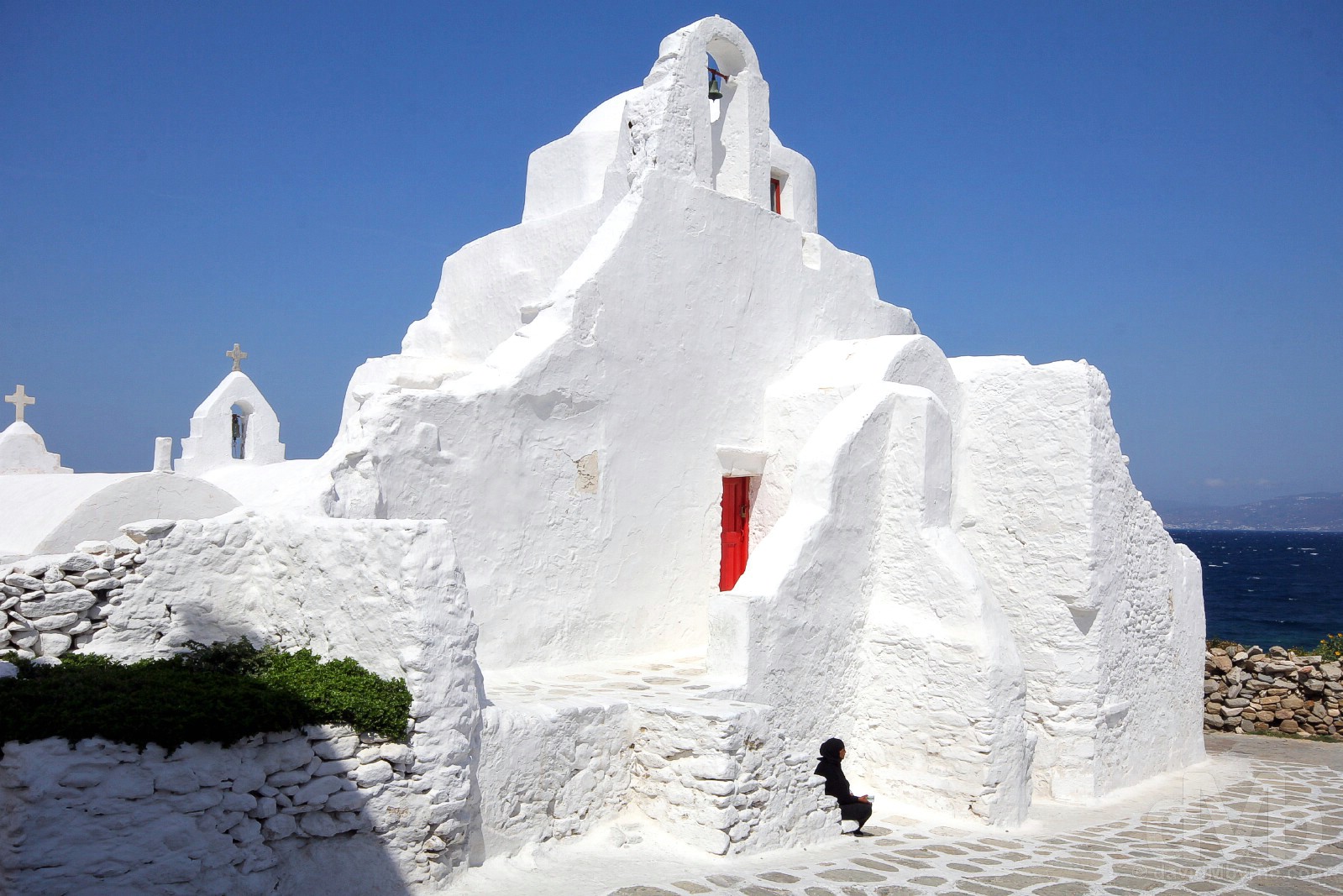
PANAGIA PARAPORTIANI CHURCH | The Panagia Paraportiani Orthodox Church, Hora, Mýkonos, Cyclades, Greece. May 2, 2017.
For all its chic posturing, Hora boasts this, the welter that is the Panagia Paraportiani Orthodox Church. An architectural oddity that looks like a massive sandcastle project, it came as no surprise to me to learn that what we see today is an amalgamation of five different churches built on top of or beside each other between the 15th and 17th centuries (the oldest church dates to 1425). Its blindingly white and unusual form, not to mention its location overlooking Hora Port, make this a bit of a Mýkonos stand out, not to mention one of the most photographed churches in the world.

GREECE FLAG | The Greek flag flying at the Kato Mili (lower mills) windmills overlooking the waterfront/Little Venice in Hora, Mýkonos, Cyclades, Greece. May 2, 2017.
Some mistakenly believe that the distinctive white and blue of the Cyclades take inspiration from the Greek flag, when in actual fact the Cyclades colour palette was well-established before the adoption of the current Greek flag in 1978; it is widely believed that both took their inspiration from the blue of the Greek sky and the white of the Aegean waves.
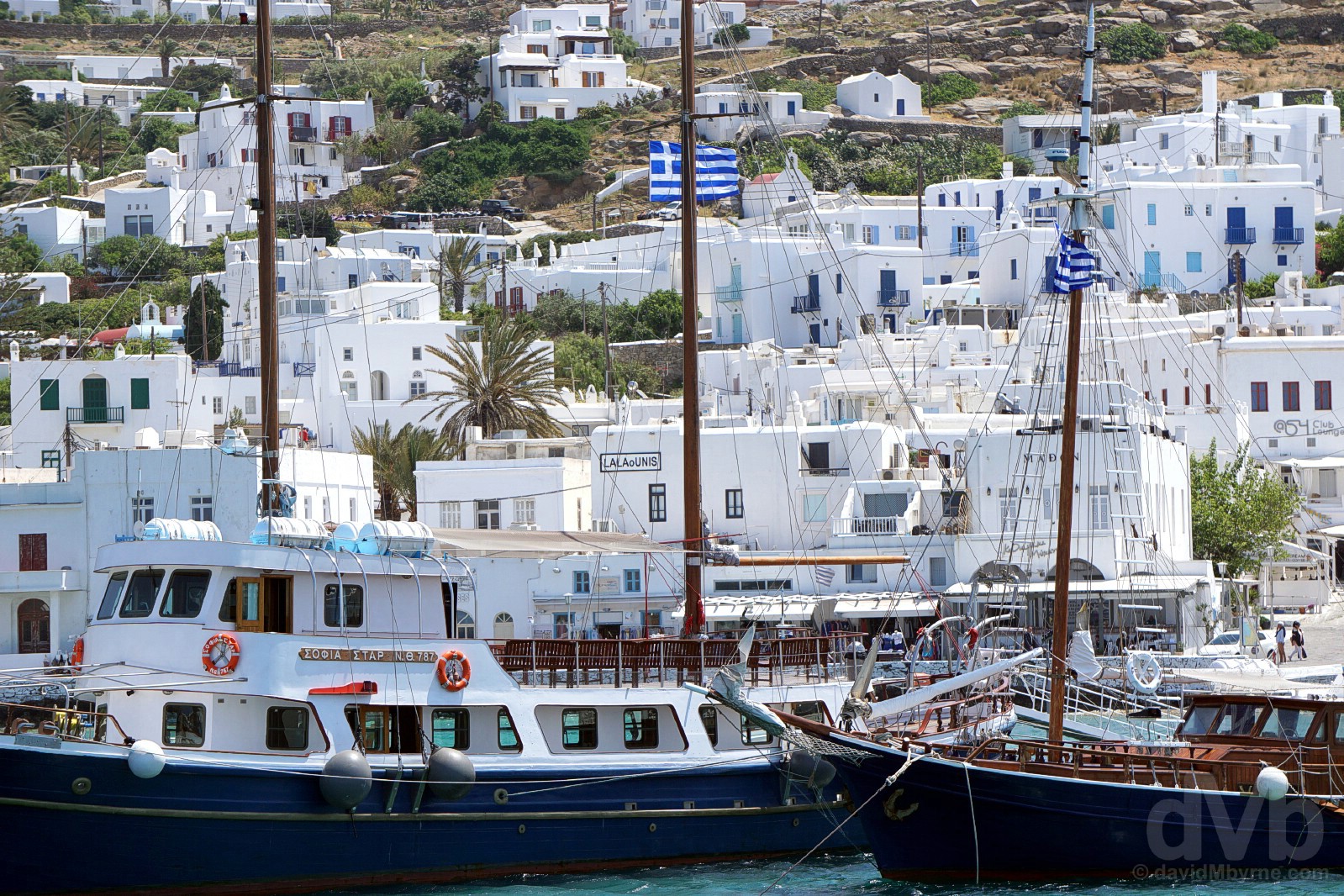
CYCLADES ARCHITECTURE | Buildings of Hora as seen from Hora Port, Mýkonos, Cyclades, Greece. May 3, 2017.
Having sighted more than a few from the (mostly elevated) deck of a vessel, it would seem to me that the hills surrounding a Cyclades port are as great a place as any to espy a huddle of traditional Cycladic cubist architecture. The blueprint is well-known (white, to reflect the worst of the sun’s heat, ‘sugar cube’ houses of minimal aesthetics (and height) but daring style and built in close proximity; the characteristic blue of church domes and doorways; and the twisting, whitewashed flagstone-paved laneways) and it has provided a unique look that has made the island group instantly recognisable around the world. And why white and blue? The Cyclades colour palette is attributed, it is said, to a mid-1930’s order by then Greek Prime Minister, Ioannis Metaxas, to spruce up the islands in a bid to combat infection and improve living standards in the economically-deprived Cyclades (the colours were chosen to promote cleanliness). That man had foresight.
Signing Off | The Complete Mýkonos Gallery
